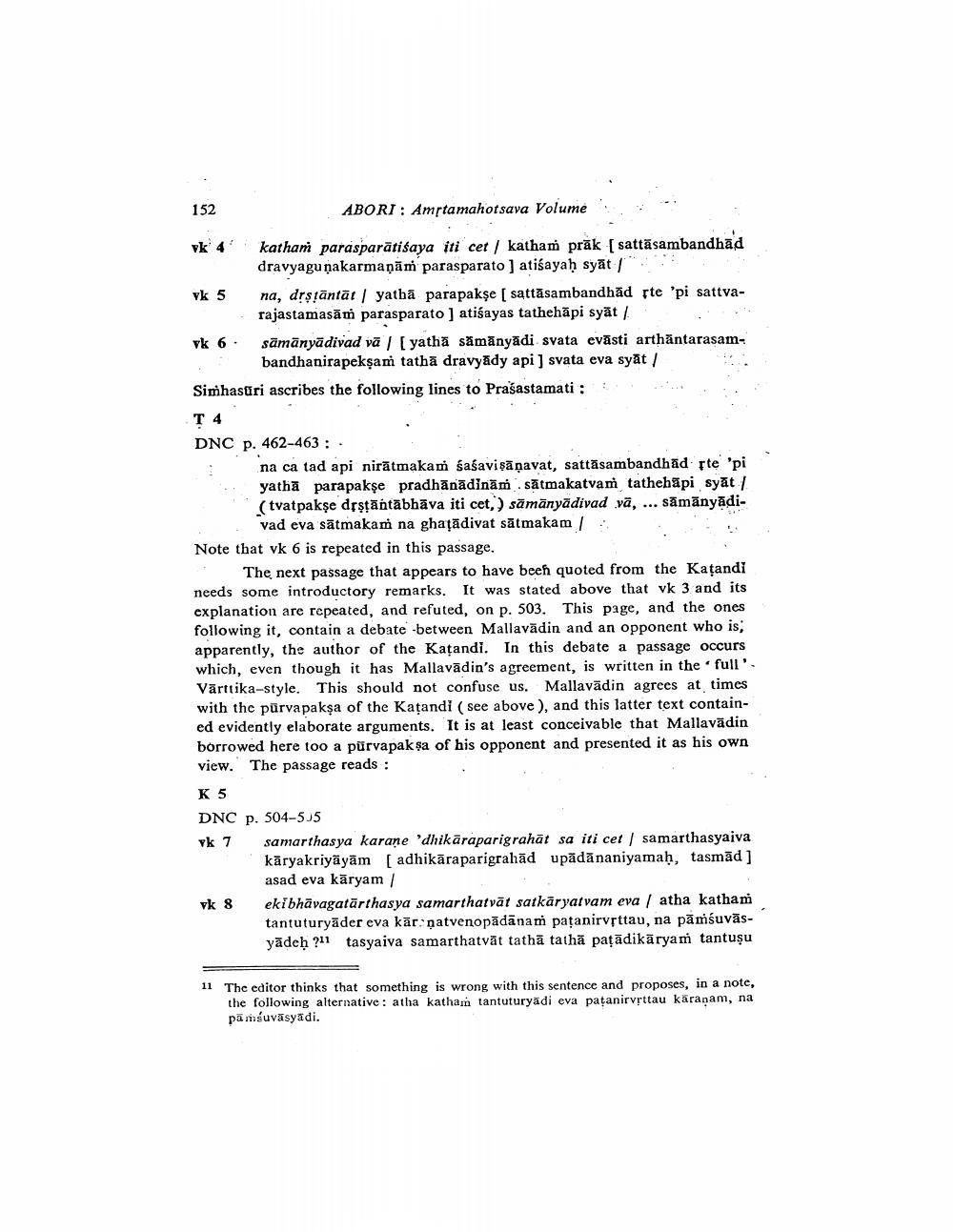________________
152
ABORI: Amstamahotsava Volume
vk 4' katham parasparātiśaya iti cet / katham prāk [ sattāsambandhad
dravyagunakarmaņām parasparato ] atiśayah syat / vk 5 na, drstāntāt | yatbā parapakşe ( sattasambandhăd şte 'pi sattva
rajastamasām parasparato ] atiśayas tathehāpi syāt / vk 6. Sämänyādivad vā yathă sămānyādi svata evästi arthäntarasam
bandhanirapekşam tathā dravyādy api ) svata eva syāt / Simhasűri ascribes the following lines to Prašastamati :
....
DNC p. 462-463 :
na ca tad api nirātmakaṁ Śaśavisāņavat, sattāsambandhad rte 'pi yathā para pakse pradhānādinām sātmakatvam tathehāpi syāt (tvatpakşe drstäntābhāva iti cet, sämānyādivad va, ... Sāmānyadi
vad eva sätmakam na ghatādivat sätmakam Note that vk 6 is repeated in this passage.
The next passage that appears to have been quoted from the Katandi needs some introductory remarks. It was stated above that vk 3 and its explanation are repeated, and refuted, on p. 503. This page, and the ones following it, contain a debate between Mallavädin and an opponent who is, apparently, the author of the Kațandi. In this debate a passage occurs which, even though it has Mallavādin's agreement, is written in the full'. Vārtika-style. This should not confuse us. Mallavādin agrees at times with the purvapakşa of the Kapandi ( see above), and this latter text contained evidently elaborate arguments. It is at least conceivable that Mallavādin borrowed here too a pürvapak sa of his opponent and presented it as his own view. The passage reads : K 5 DNC p. 504-515 vk 7 samarthasya karane 'dhikāraparigrahāt sa iti cet samarthasyaiva
kāryakriyayam [ adhikāraparigrahād upādānaniyamah, tasmād]
asad eva kāryam / vk 8 ekibhāvagatārthasya samarthatvāt satkāryat vam eva / atha katham
tantuturyāder eva kār:ņatvenopādānam pațanirvsttau, na pāmśuvāsyādeh ?11 tasyaiva samarthatvāt tathā tathā pašādikāryam tantuşu
11 The editor thinks that something is wrong with this sentence and proposes, in a note,
the following alternative: atha katham tantuturyadi eva pațanirvettau karaṇam, na pāmáuvāsyadi.




